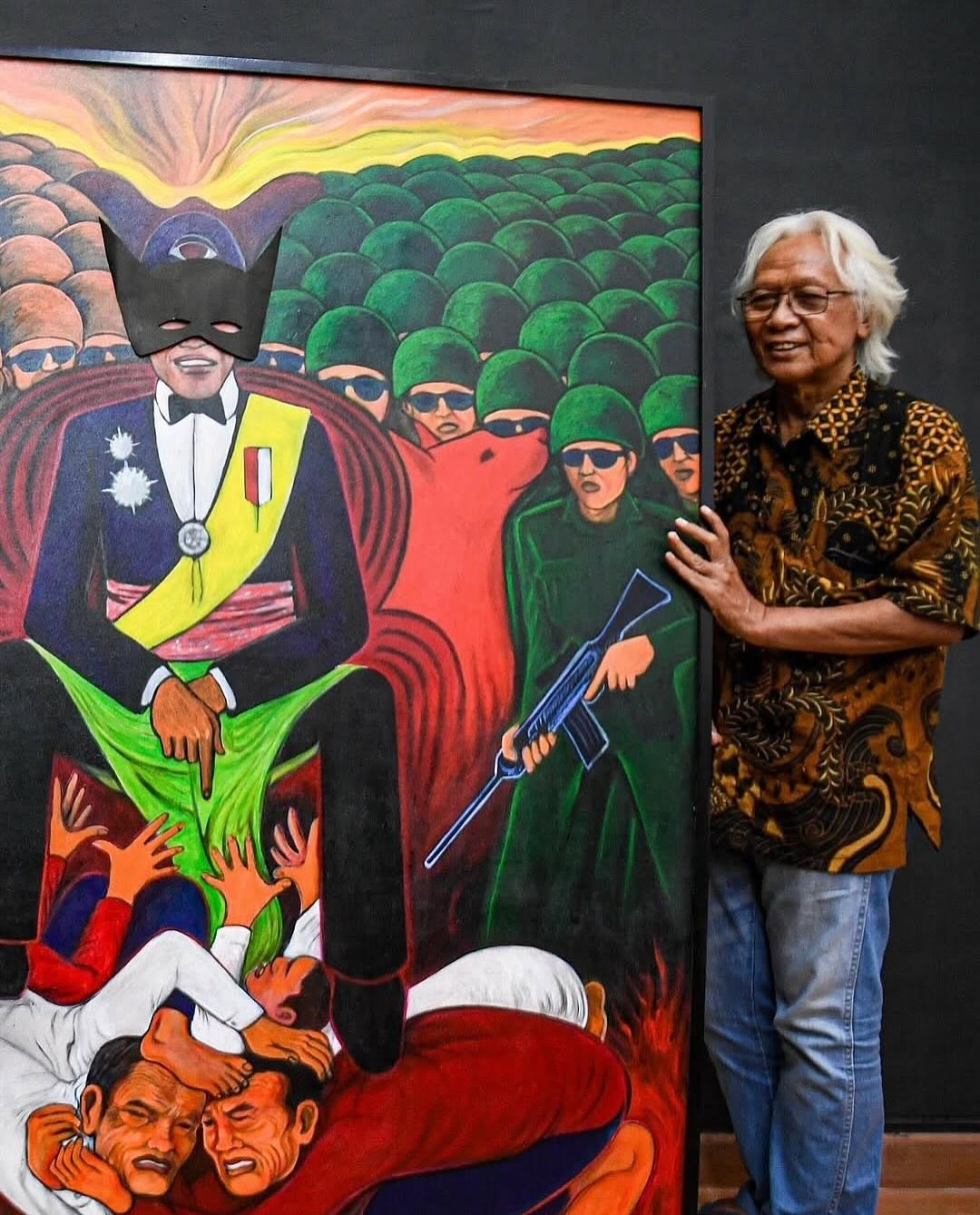Indonesian Artist’s Exhibition Canceled Over Political Paintings
By Annette Meier

YOS SUPRAPTO with his acrylic painting, Konoha I, 2024. Via Instagram.
On December 19, 2024, the National Gallery of Indonesia in Jakarta canceled a solo exhibition by Yogyakarta-based artist Yos Suprapto after he refused to take down several paintings depicting Joko Widodo, the country’s president from 2014 until 2024.
Entitled “Kebangkitan: Tanah Untuk Kedaulatan Pangan (Revival: Land for Food Sovereignty),” the exhibition was originally scheduled to run from December 20, 2024, to January 19, and centered on the marginalization of farmers and the destruction of agricultural land in Indonesia.
Yos, who is known for addressing sociopolitical issues in his practice, had created clay installations and 30 paintings for the show, which criticized heedless state policies regarding farmland use. Five of the paintings allegedly portrayed the nation’s seventh president Joko Widodo (who remains popular among Indonesians today), which the exhibition’s curator, Suwarno Wisetrotomo, took issue with and asked the artist to remove.
As reported by the Indonesian news outlet Tempo, Suwarno explained that the works were “too vulgar,” and that they reflected the artist’s personal opinions on the government, thereby deviating from and undermining the curatorial theme. After a back-and-forth discussion about taking down the paintings, Yos had agreed to cover two of them—Konoha I and Konoha II (both 2024)—with a black cloth. However, shortly after reaching this compromise, the museum asked the artist to conceal the other three paintings as well. When the artist refused, Suwarno resigned as curator, and the exhibition was canceled ten minutes before the opening. The National Gallery posted a notice reading: “This decision is taken due to unavoidable technical constraints.”
Defending himself, Yos emphasized in a statement that his work aligned with the curatorial theme, as it is based on over a decade of research on the environmental impact of Indonesia’s agrarian laws. He added that artists are “public intellectuals who capture the decay in society,” and likened the gallery’s decision to cancel his exhibition to censorship.
Many speculate that political pressure led to the cancellation, as Indonesia’s minister of culture, Fadli Zon, who was set to open the exhibition, nixed his presence ahead of the event.
“The cancellation of this exhibition is an alarm for freedom of expression in Indonesia,” said Yos, who took his paintings down on December 23. “In conditions like this, artists are at the forefront of ensuring that art does not dissolve into authoritarianism and remains an effective tool for social criticism.”
Annette Meier is an editorial assistant at ArtAsiaPacific.







